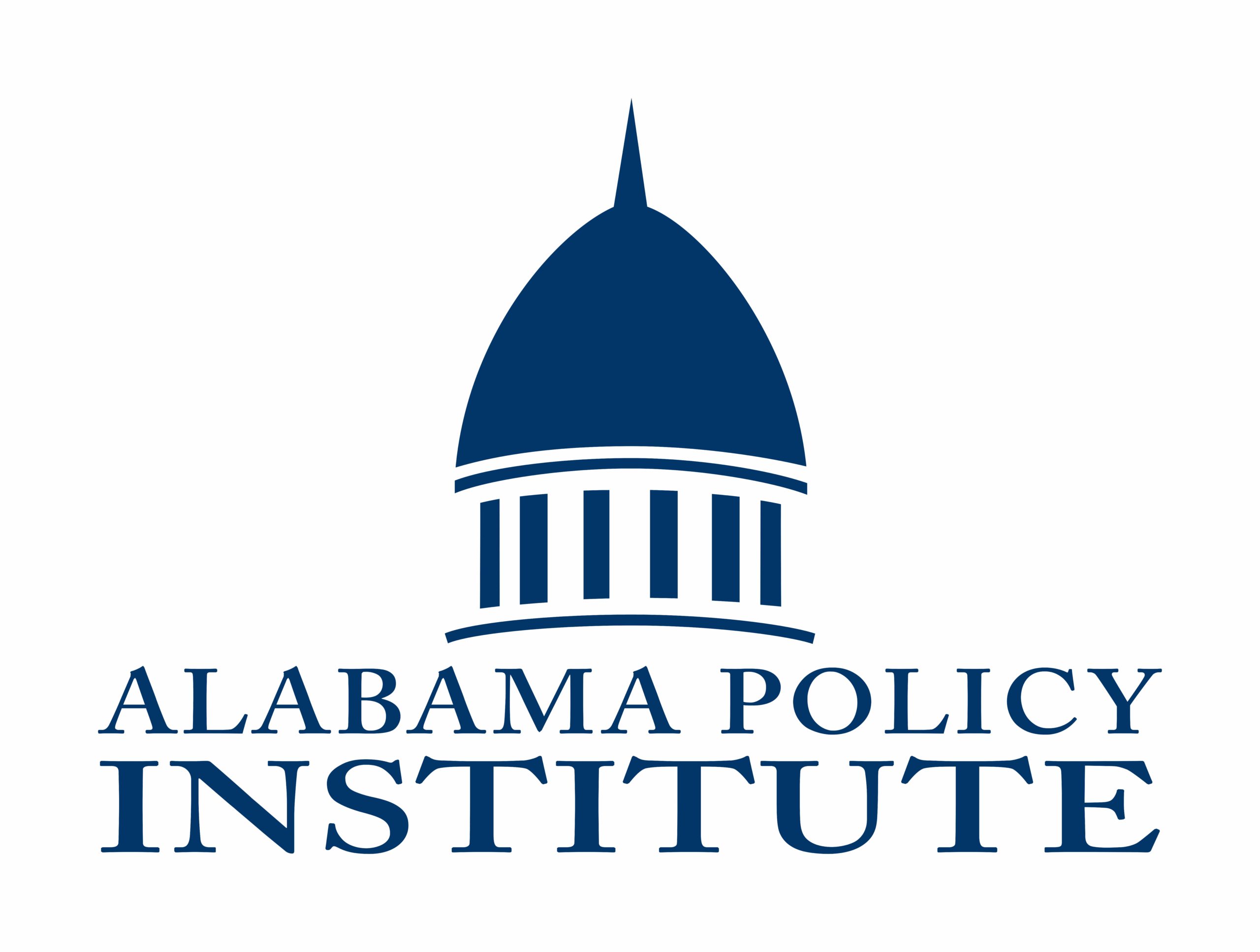How Does Alabama’s Business Climate Compare to Other States?
Throughout Alabama’s 2023 Regular Legislative Session, much of lawmakers’ time was focused on making the state more competitive in attracting new businesses. The “Game Plan” legislation took several steps aimed at achieving that goal, including the renewal and expansion of the Alabama Jobs Act and Growing Alabama program.
Time will tell if steps taken during the 2023 session will have a lasting impact on economic development in the state, but where does Alabama stand as of today?
According to newly released rankings from CNBC, Alabama currently ranks 42nd amongst the top states for doing business, down nine spots from last year. In contrast, North Carolina, Tennessee, Georgia, and Florida all ranked in the top 10, with North Carolina reaching the number 1 ranking.
Various Alabama political and economic leaders have denounced the CNBC rankings, mainly pointing to the fact that they too heavily weigh left-leaning social indicators in the determination of which states are the most business friendly, instead of looking solely at economic factors. And to be fair, there are a number of other studies that have looked upon Alabama’s business environment much more favorably.
What’s behind Alabama’s low ranking in the CNBC report?
CNBC used a number of criteria in its determination of which states are the best and worst to do business in. These include an analysis of states’ workforce, infrastructure, overall economy, quality of life, health, and inclusion, the costs of doing business, technology and innovation, business friendliness, quality of education, access to capital, and cost of living.
Alabama received failing grades for health, life and inclusion and business friendliness, while scoring only slightly better in workforce, and access to capital. The state’s highest rankings were for the costs of conducting business, cost of living for employees, and the state’s infrastructure system.

In terms of health, life and inclusion, CNBC gave Alabama a low ranking because of several factors. One is the state’s high violent crime rate. As of June 2023, Alabama had the third highest per capita homicide rate in the nation. Another is that the state has relatively low levels of unionization amongst its workforce. Because Alabama is a right to work state, no employee can be required to join a union. CNBC also cited the fact that because Alabama adheres to the $7.25 federal minimum wage standard, earnings are lower than in states that have adopted a higher state minimum wage.
As others have argued in defending Alabama’s ranking, it is worthwhile to note that the ranking weight of the health, life, and inclusion category was 350 points, or 14% of each state’s overall score. This is higher than the value for other categories that more directly correlate to the overall business environment, such as the costs of doing business (11.6%), technology and innovation (10.8%), business friendliness (8.6%), and access to capital (2%). In the CNBC ranking, health, life, and inclusion factors carry almost as much weight as the state’s overall economy (14.4%), which is a much more important indicator of Alabama’s overall business environment.
Business friendliness is another area of CNBC’s rankings where Alabama underperforms many states in the region. This category includes factors such as the state’s regulatory framework, as well as lawsuit and liability climate.
According to the most recent edition of the U.S. Chamber of Commerce’s Lawsuit Climate Survey, Alabama ranked 42nd in the country, meaning that businesses face significant risks of having legal decisions go against them. In 2019 it was estimated that the legal costs and damages born by businesses were 2.48% of Alabama’s GDP, or just over $5 billion.
Reducing state government’s regulatory burden is an issue that has already been acknowledged by Governor Kay Ivey, who earlier this year issued an executive order aimed at cutting 25% of the state’s business regulation activities by March 2025. The Governor also implemented a moratorium on most new regulations through March of next year. The goal of the proposal is to create less government interference in the daily operations of Alabama businesses. A 2021 study by the CATO Institute found that Alabama was the 21st most regulatorily burdensome state for entrepreneurs.
There are several ways that Alabama’s government could pursue deregulation and improve its standing amongst other states. One important step is occupational licensing reform. A recent report from Archbridge Institute ranked Alabama as having the third most burdensome occupational licensing requirements in the country. API research has found that more than 20% of Alabama’s workforce is covered by the state’s occupational licensing laws. The burdens of licensing make it a sometimes expensive and time consuming process to enter a profession, as well as making it more difficult for some Alabamians to change careers.
Alabama lawmakers should work towards repealing occupational licensing requirements if they do not directly protect the health and safety of citizens. Doing so could improve the state’s business environment by making more citizens immediately eligible for jobs, which could also help increase the state’s labor participation rate.
Certificate-of-need (CON) laws is another area where lawmakers should pursue deregulation. CON laws were originally instituted as a means to control rising health care costs and improving the quality of care. In reality they have done the opposite, leading a number of states to repeal CON laws entirely or limit their application.
Alabama’s CON laws require healthcare providers to provide evidence to a state review board proving why a new or expanded medical service is needed. Existing providers have used this review process to limit competition and promote an anti-free-market healthcare environment, limiting the healthcare option available and increasing the costs of service for many Alabamians, as well as leading to poorer patient outcomes.
Another major factor in Alabama’s low ranking is the state’s workforce. As has been acknowledged as a concern of lawmakers, the state has one of the lowest labor participation rates in the nation, 57.1% as of May 2023. There’s also a significant gap between the number of students graduating from Alabama’s public high schools and those that are actually prepared to enter the workforce. In 2022, 79% of the state’s high school graduates were certified as college and career ready, a slight improvement over 2021 but still 47th in the U.S.
Without having more Alabamians willing and able to be a part of the state’s workforce, and without those who are willing being adequately prepared to do so, it will be a struggle for Alabama to attract and retain businesses to the state. Lawmakers should pursue reforms that will encourage more Alabamians to enter the workforce, such as lowering the overall income tax burden on workers, as well as improve the state’s quality of education, enabling high-school graduates to be better prepared to enter the state’s workforce.
While there continues to be room for improvement in motivating more Alabamians to enter the workforce as well as closing the college and career readiness gap, the state has made strides in recent years towards advancing workforce development. In January, Site Selection, an economic development publication, named Alabama the top state in the Southeast for workforce development. In recent years the state has implemented several new training programs and dedicated more resources towards marketing Alabama’s workers to perspective employers.
Definitive conclusions about Alabama’s business environment or other areas of analysis should not be made based on just one study. To an extent, the criteria and conclusions are subjective. For example, while CNBC penalizes Alabama for not having a heavily unionized workforce, many citizens see that as a benefit of living in the state. It also did not include factors such as local sales and occupational tax rates in its cost of living estimates, which Alabama scored well on.
Other studies have found Alabama’s business environment to be much more favorable, consistently ranking in the top 10 in the country. However, there is a recent trend. In its 2023 State Business Tax Climate Index, the Tax Foundation ranked Alabama just one spot better than CNBC at 41st. It found room for improvement in Alabama’s corporate and individual tax burdens, as well as high local sales tax rates, among other factors.
While rankings can be used as a subjective tool to show how Alabama stacks up against other states in the region and across the country, elected officials and other state leaders should not overreact to either positive or negative rankings. Instead, they should take rankings constructively and focus on identifying and resolving any shortcomings that the state may have, whether those be economic factors, education, healthcare, etc.
API continues to work tirelessly to provide policy solutions to Alabama lawmakers that will not only improve the environment for businesses, but improve the lives of all citizens. This includes initiatives to reduce the size of state government, lower the overall tax burden on individuals and businesses, transform the state’s educational framework, remove barriers that impact businesses and workers, and ensure that the values that many Alabamians believe in strongly continue to be protected.


